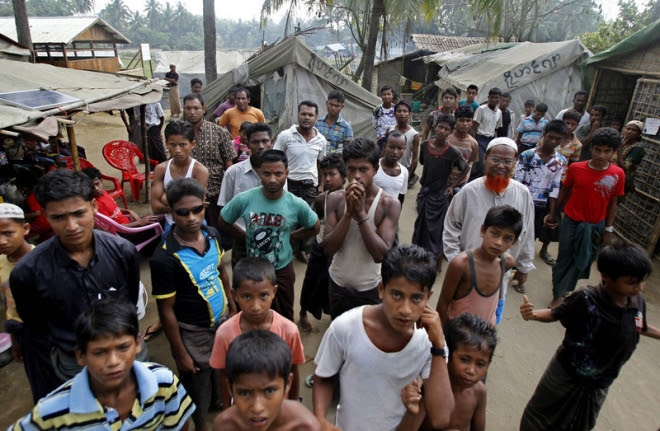The ‘Rakhine State Action Plan’ has been criticised by Human Rights Watch as a course of action that will only further segregate the community in Rakhine and further entrench discrimination against the group that self-identifies as Rohingya.
The New York based, international non-governmental organisation that conducts research and advocacy on human rights, released a statement on their website on October 3, after obtaining a copy of the document, that they say refuses to acknowledge the term Rohingya throughout, instead referring to “Bengalis,” the government’s official name for the group.

“The long-awaited Rakhine State Action Plan both expands and solidifies the discriminatory and abusive Burmese government policies that underpin the decades-long persecution of the Rohingya,” said Mr Phil Robertson, HRW’s deputy Asia director. “It is nothing less than a blueprint for permanent segregation and statelessness that appears designed to strip the Rohingya of hope and force them to flee the country.”
Human Rights Watch said on their website that “The plan is supposed to serve as the general blueprint for development and post-conflict reconstruction in the state.”
It continued to note the plan includes “six sections; Security, Stability, and Rule of Law; Rehabilitation and Reconstruction; Permanent Resettlement; Citizenship Assessment of Bengalis; Socio-Economic Development; and Peaceful Coexistence.”
Human Rights Watch said the section on ‘Permanent Resettlement’ sets out the steps that wouldlead to the forced resettlement of over 130,000 displaced self-identified Rohingya from the pre-existing camps for internally displaced people, which are found near the state capital, Sittwe, and other townships into new closed camps, in as yet unspecified locations.
“The Burmese government’s plan proposes segregation measures that have been advocated by extremists,” said Mr Robertson. “Moving the Rohingya further from urban areas to isolated rural camps will violate their basic rights, make them dependent on outside assistance, and formalise the land grab of Rohingya property.”
Human Right Watch say that Part IV of the draft plan outlines steps for citizenship assessment of the Rohingya, using as its guide the 1982 Citizenship Law, a law they say has been used to deny citizenship to self-identified Rohingya for decades. They add the“plan includes a nationality verification process that started in August and is supposed to register all “Bengalis” by March.”
Following a pilot phase of the verification process in Myebon, 209 Muslims, most of whom were indigenous Kaman Muslims, received citizenship documents at a ceremony held on September 22.
Human Rights Watch said these 209 came froma total of 1,094 Muslims who took part in the process.
Mizzima reported that on September 23, Rakhine Chief Minister U Maung Maung Ohn warned the state's citizens not to oppose the government's decision to grant citizenship to 40 "Bengalis" among the 209 that received citizenship on September 22.



